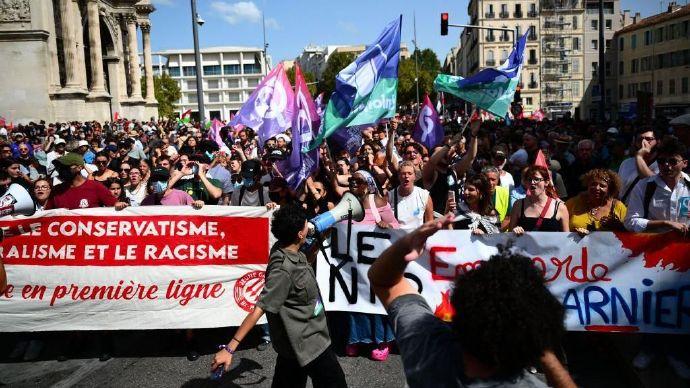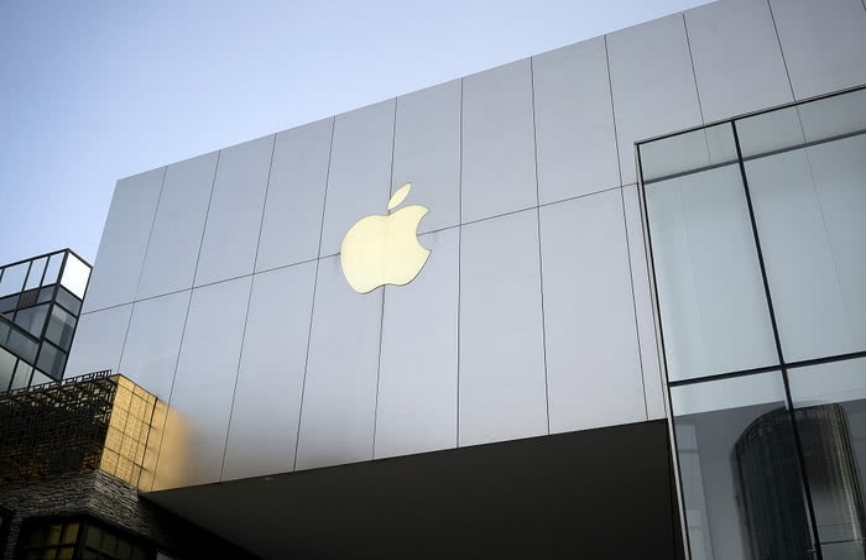
In the French political arena of 2024, Macron's act of forming a right-leaning new government is like a boulder dropped into a tranquil lake, creating huge waves and eliciting large-scale protests from left-wing demonstrators. This series of events not only reflects the complexity and diversity of French politics but also highlights the deep divisions among different political factions.
The French National Assembly elections in July plunged the French political landscape into a stalemate and chaos. The left-wing coalition "New People's Front" won the most parliamentary seats but did not obtain an absolute majority. In this complex political situation, Macron, in order to break the deadlock, appointed a right-wing political figure and Republican, Barnier, as the new prime minister on September 5 and tasked him with forming a new government. After two weeks of arduous negotiations, the new government team was finally formed amid the power struggles of various parties. However, this decision to form a right-leaning new government is like a bombshell, instantly igniting the fury of the left. On September 21, the French presidential palace announced the list of members of the new government, which is mainly composed of centrists and right-wingers. This result greatly disappointed the left-wing camp. They believe this is a blatant denial of the election results in July. On the day the list was announced, thousands of supporters of left-wing parties took to the streets in Paris and other places to stage protests. They held up signs and shouted slogans, condemning the government's actions and demanding respect for the election results and the formation of a government that can represent the will of the general public.
The leader of the far-left party "La France Insoumise," Mélenchon, was even more vehement in his remarks, stating that the new government "has neither legitimacy nor a future and must be overthrown as soon as possible." He believes that the formation of the new government completely deviates from the expectations of voters and is a serious trampling on the French democratic system. Under his call, many left-wing people actively responded and joined the protest ranks, making the scale of the protests continue to expand. This large-scale protest activity not only reflects the strong dissatisfaction of the left with the new government but also is a form of resistance to the current political situation in France.
From a political perspective, Macron's choice to ally with the right to form a new government is an adjustment of political strategy. However, for the left, this is undoubtedly a betrayal. In the past period, the left has been committed to promoting social reforms and paying attention to livelihood issues such as raising the minimum wage and reimposing a tax on the rich. They hoped to achieve their political demands and improve the lives of French people through the integration of political forces. However, the formation of the new government has made their efforts come to naught, which has significantly reduced the left's trust in the Macron government.
In terms of the economy, France is currently facing issues such as a continuously expanding budget deficit. The left believes that the economic policies of the right often tend to safeguard the interests of large enterprises and the wealthy while ignoring the needs of ordinary people. The strong return of right-wing forces in the new government may lead to a bias in economic policies, further exacerbating the social wealth gap and being unfavorable to the sustainable development of the French economy. Therefore, the left is full of concerns about the economic policies of the new government, which is also one of the important reasons for their protests.
At the social level, the right-leaning tendency of the new government may cause social division. French society has always had contradictions between different political positions and classes, and the formation of the new government will undoubtedly deepen these contradictions. The policy stances of the right often differ greatly from those of the left. For example, on issues such as immigration and social welfare, there are obvious differences in their views. The establishment of the new government may lead to adjustments in social policies and affect the interests of some people, thus triggering social instability.
From the perspective of international influence, the right-leaning tendency of the French new government may also have an impact on France's status on the international stage. France has always been an important member of the European Union and plays an important role in European affairs. However, the formation of the new government may lead to changes in France's policy positions within the European Union and affect France's relations with other EU member states. At the same time, in international affairs, France's foreign policy may also be affected by the right-leaning tendency of the new government, weakening its influence on the international stage.
Facing the intense protests from the left, the new government is under tremendous pressure. When the French National Assembly opens on October 1, the new government will face the challenge of a motion of no confidence. The attitude of the far-right party "National Rally" is also crucial. Since it has significant influence in government negotiations, if the "National Rally" chooses to vote in favor of the motion of no confidence, the Barnier government may collapse at any time.
Macron's act of forming a right-leaning new government has triggered intense protests from the left, plunging France into political, economic, and social dilemmas. In the future, whether the new government can stand firm under heavy pressure and achieve stability and development in France remains highly uncertain. This not only tests the governing ability of the new government but also tests the spirit of compromise and cooperation among various political forces in France.

Recently, according to 9To5Mac, the Apple Podcasts app was exposed to have the problem of automatically redirecting unsubscribed programs, and some of the redirected programs were suspected to contain malicious links.
Recently, according to 9To5Mac, the Apple Podcasts app was …
Recently, multiple Federal Reserve officials have publicly …
Ukrainian President Vladimir Zelensky met with French Presi…
In November 2025, South Korean e-commerce giant Coupang was…
On December 2, 2025, the international silver market witnes…
On November 30 local time, a report released by the Stockho…